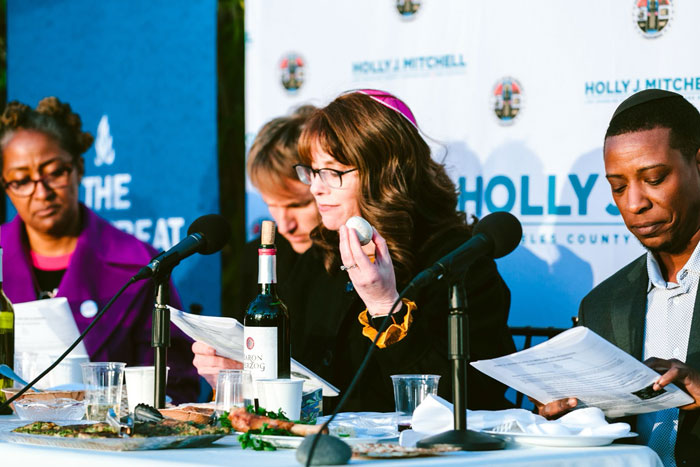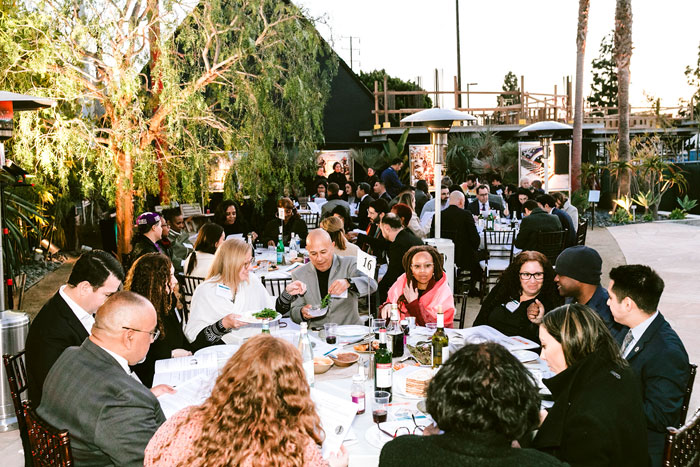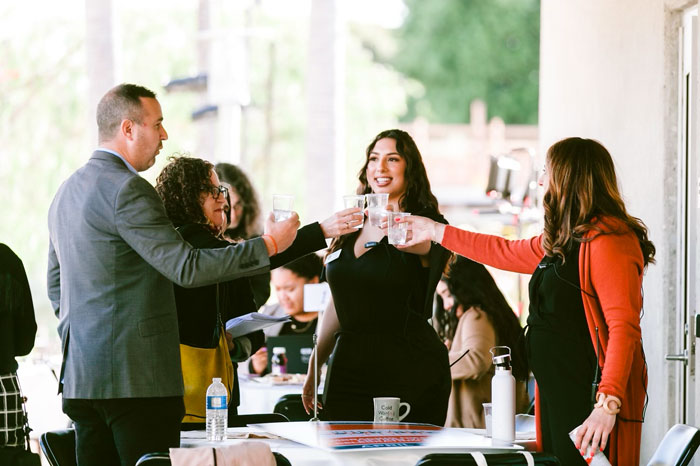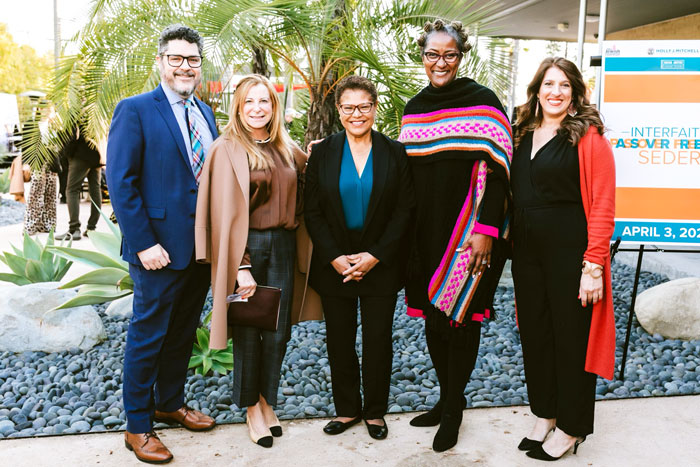
On April 16, The Jewish Federation of Los Angeles (JFEDLA), in partnership with the Museum of Tolerance, LA vs. Hate, and the Los Angeles County Commission of Human Relations, will hold a Passover seder for approximately 200 guests unlike any other. The seder will showcase a specially crafted Haggadah and program designed to address current events, featuring musical performances by FAME and Temple Isaiah Choirs.
The objective is to foster greater understanding and unite community and religious leaders in comprehending the history of the Jewish people and combatting antisemitism.

Rabbi Noah Farkas, President and CEO of the JFEDLA, told the Journal: “I really believe what Bryan Stevenson, that famous lawyer and justice advocate from the South, wrote in his book ‘Just Mercy’ when he talks about proximity. He says it’s really hard to hate something that you’re proximate to and it’s really easy to work through someone and with someone’s pain when you have proximity to them. So the seder invites them to our table to create proximity in a non-transactional way, where the agenda is relationship. That’s what I believe, and we see that it works.”

The Jewish community in the U.S. has never had to try so hard to fight antisemitism, which has been on the rise since Oct. 7. Indeed, even before that day’s tragic events, the Jewish Federation had hosted Interfaith Passover seders, but this year it feels a little more urgent to bring community and interfaith leaders together. The hope of course is that those leaders – pastors, reverends, imams, civic leaders and heads of foundations – will pass along the message to their communities. This year, participants will include Museum of Tolerance leaders; Robin Toma, executive director, Los Angeles County Commission on Human Relations; Rabbi Sarah Hronsky, President, Board of Rabbis of Southern California; and Pastor James McKnight of the Congregational Church of Christian Fellowship.
At last year’s seder, Mayor Karen Bass was among the guests. Participants were presented with a special Haggadah, which included passages from the traditional text updated to reflect contemporary issues. Instead of recounting the 10 biblical plagues, such as blood, frogs and lice, the Haggadah addressed 10 enduring plagues affecting Los Angeles for years: Homelessness, food insecurity, systemic racism, violence, immigration and refugee crises and modern-day slavery including incarceration and human trafficking, among others.
In the section of the Haggadah discussing the four sons, the JFEDLA Haggadah prompted participants to engage in discussions about individuals striving for racial justice. Questions posed included: “How would you respond to someone who says, ‘I support equality, but the tactics and strategies used by current racial justice movements make me uncomfortable?’” Or, “How do I reach out and engage with marginalized communities in an authentic and sustained way?” Additionally, the Haggadah encouraged consideration of perspectives from people of color.
“The redemption story of the ancient Israelites is also the redemption story of the modern Jewish people. The seder table itself has a unifying effect, unifying moment and a redemptive moment.“ – Rabbi Noah Farkas
“The redemption story of the ancient Israelites is also the redemption story of the modern Jewish people,” said Farkas. “The seder table itself has a unifying effect, unifying moment and a redemptive moment. One of the greatest gifts we ever gave to the world community is the promise that the future doesn’t have to look like yesterday. In ancient times, the rabbis said, civilization lived at the whim of gods. It was the Jews who said, ‘No, the future is redemptive. It’s something that we can look forward to, and we know that because we know that redemption is possible from the past,’” he said. “In this moment, life feels very dark for the Jewish community. There are hostages in tunnels and there are Jews who are displaced from their homes, 200,000 in Israel alone. When antisemitism has reached its most violent heights in two generations, as Jews, we need to hold on to that reunification and that redemption.”

For many attendees, this will be their first Passover seder. They will partake in rituals, learn symbolic meanings, join in songs such as “Go Down Moses” and ask the Four Questions. Although they may not complete the entire Haggadah or try to find the afikoman, they gain a deeper understanding of its significance.
Farkas shared insights from previous seders, illustrating how conversations around the table fostered empathy and understanding: “They talked about their own story of redemption, how their families perhaps came from one place and arrived in the U.S. and then find the similarities and understand each other story better,” he said. We talked about what’s your immigrant story? What is the story of your family going from one place and going to another place? What is the story of redemption for your family? What’s the story of reunification for your family? And now, let me share with you mine from my perspective.”
Then, they break matzah together and engage in discussions about the community’s aspirations. Farkas emphasizes the symbolic significance of matzah: “Remember, matzah is the most unique element in Jewish life as it represents both adversity and freedom, affliction and redemption. It embodies the duality of our experiences, prompting us to reflect on both our past struggles and our future possibilities.”
Reflecting on recent challenges, Farkas acknowledged feelings of isolation since Oct. 7: “Many of us, myself included, have felt profoundly alone … some of our traditional allies seem to have left us in the dark. However, we find solace in our deepest relationships, where we engage in nontransactional, redemptive conversations. These are the individuals who stand by us through thick and thin, demonstrating the transformative power of community engagement, exemplified by events like the seder.”
He highlighted the significance of longstanding partnerships, stating, “We have collaborated with 15 civic partners for years… These were the allies who reached out to us on Oct. 8, 9, 10, checking in on our well-being. Some of these organizations, whom we support, generously contributed to the Israeli crisis fund. It’s a testament to the strength of our relationships and the impact of community engagement.”






















 More news and opinions than at a Shabbat dinner, right in your inbox.
More news and opinions than at a Shabbat dinner, right in your inbox.